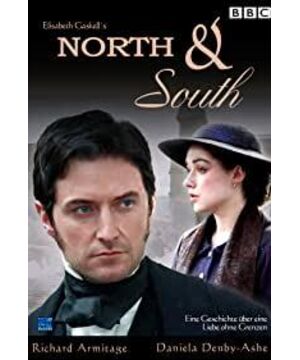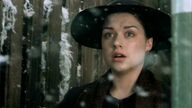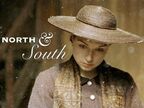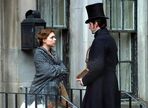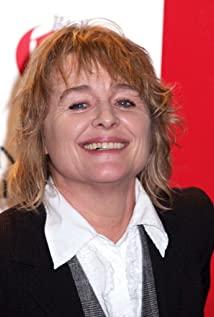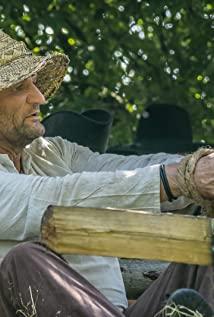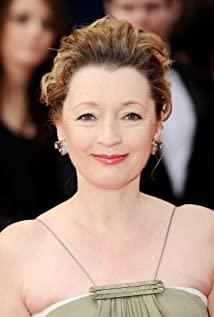took a vacation in July last year. When I was bored, I inadvertently clicked on Sohu Video's BBC mini-series "South and North". Since then, I found another good drama!
The series is adapted from Elizabeth Gaskell's novel of the same name, adhering to the BBC's tradition of condensing the essence. The series has only 4 episodes, each about 50 minutes, with a clear narrative and no redundant shots. The story is not complicated. In the mid-19th century, Margaret, a girl who grew up in a refined and elegant atmosphere in the South, had to follow her family to Milton, an important town in the cotton spinning industry in the north, because her father gave up her priesthood. There, she meets Thornton, a cotton mill owner, with whom she is prejudiced. After going through a series of incidents such as strikes and the departure of relatives, prejudice turned into understanding, and finally sublimated into love.
The BBC's screenwriters just have a knack for making you want to read the original after watching a TV series, and they're all excellent experts in literary promotion. It's a pity that this book can't be found on the market. Fortunately, the Internet is omnipotent. After reading the original work, I know what a successful adaptation of a famous novel is.
When watching famous movies and TV dramas, the audience will be very concerned about whether they are faithful to the original work. From this point of view, the screenwriter of "South and North" is not easy to evaluate. To say that she is not faithful to the original work is not objective. The play accurately reflects the theme of the story and the character of the characters; she is indeed not very faithful to the original work. There are a lot of adaptations in the play, but the changes are so clever and wonderful , I believe that Mrs. Gaskell will also applaud in heaven. Some adaptations are impressive:
1. The adaptation of the hero and heroine's first meeting was very successful. The first meeting in the original book was in a small inn, and Thornton visited. M's beauty and noble temperament made T fall in love at first sight, while M had no special feeling for T. In the TV series, M went directly to the factory to find T. When she pushed open the door, she believed that the audience was shocked by the sight in front of her, the cotton wool fluttering like snowflakes, the roaring machines, and the busy workers. never seen. Then something even more unseen happened, a well-dressed man beat up a poor worker! This is so ungentlemanly! M's integrity broke out at that moment (thinking of her father's insistence on principles, what happened to her brother, it is not difficult to understand the courage of this young girl at this time, the tradition of the Hale family), she bravely went up to stop her, but was indignant by T Boom away. A peaceful first meeting turned into a fierce conflict, M's lack of feeling towards T turned into anger and contempt, and I believe that at that moment T could not care to appreciate M's beauty and nobility, two people who were destined to love each other. But in this way began to communicate. For spectators, there is drama! Conflict is the soul of drama.
2. In the first episode, Bessy stood in front of the loom and saw the conflict between M and T, which was not in the original book. Although there is only one shot, it has paved the way for Bessy and M to become good friends in the future.
3. The screenwriter also made a careful adaptation of the reason for Mr. Hale's resignation from Pastor Helstone. In the original book, Mr. Hale explained to his wife and daughter why he resigned in his hometown of Helstone. In the TV series, it was in Milton. After Mrs. Hale and her daughter Margaret felt the disappointment brought to them, Mr. Hale said under their questioning. out of the reasons to leave the southern hometown. It's a pity that in his opinion this reason is noble enough and sufficient, but in the eyes of his wife it is a trivial matter. For this trivial matter, Mr. Hale gave up his hometown to come to this bad place. A source of income for a family, teaching in this cultural desert! Obviously the timing of the expression of the TV series is better than the original, or because the drama needs conflict.
4. When I met Nicholas for the first time, N politely declined the change that M handed over to N to express his gratitude. The original book did not. In the south, it is normal for an elegant lady to regard coolies like N as servants, and it is normal to get a reward for their help. But N is different. He obviously doesn't help others for money, he values his own dignity. This is what a worker leader looks like. There are many plots about N in the original work, and many long dialogues are used to express his thoughts and character. TV dramas naturally don't have such length, but the screenwriter only used a few such small details to make the character N plump up. Especially in the last episode, in the original book, N seems to unconsciously say that M has an older brother in Spain, but on TV, when you see N's meaningful smile, you know that this seemingly rough worker not only has super influence, Willpower, in fact, also has rich emotions and keen observation.
5. There are also adaptations about the encounter with M's brother Frederick. The original book was told by M's mother, and M was told to Bessy in the TV. On the one hand, it showed that M and N's family had deep feelings and mutual trust, and on the other hand, it paved the way for N to tell T about M's brother.
6. Mr. Bell's early appearance. Bell in the original book is a fat and funny old gentleman. In the TV series, he is a suave old gentleman. The constant is humor and wisdom. This arrangement is reasonable. There must be more shots to express Mr. Bell's love and concern for M, so that it is logical to give all the property to M. In the last episode, Mr. Bell expressed very ambiguous thoughts about letting M also take care of him, as if an old cow would eat young grass. This kind of arrangement is very bold and fashionable, and it can not be said to be unreasonable, and it shows the charm of M. In the original book, Mr. Bell even thought of marrying a wife reluctantly (to avoid suspicion), so that he could adopt M easily. In fact, it was a very pure love of elders.
7. Talk about an adaptation that you don't really like. At the banquet at T's house, M and T kept their eyes on each other, which was very abrupt. T's affection for M had been explained before, and M, it seems that there was no previous episode to explain the change of T's feelings, and the eye wave was clearly destroying M dignified temperament. The original expression is very reasonable. M doesn't like women's parents, and always follows the topics of men. From N, she can understand the workers' thoughts on strikes, but here, she can understand the thoughts of the factory owners. It is only about the topic. interests, not people.
8. Added the plot of the World Expo. I guess the screenwriter did the next thing to show the impact of the Industrial Revolution on the world. The Londoners behind it saw the development of machinery as prosperous as a World Expo, and the hardships were only those who racked their brains under the gray sky all day. Only the manufacturers know. At this time, M's understanding of industrial development was much deeper than that of ordinary Londoners, and his understanding and acceptance of the North was further deepened. Without this opportunity for comparison, M might not have realized the change in his ideology. Judging from the plot arrangement, she went to visit the World Expo so that her mother had a good opportunity to ask her mother T.
9. Look back, look back at me. Personally, I think this sentence is as classic as "you and me, it's real" in prison break. There are a lot of psychological descriptions about T's feelings towards M in the original book, which are enthusiastic, tangled and painful, and they are very restrained when they meet. The screenwriter seized this opportunity, a girl in her twenties lost her parents one after another in a place far away from home, which was pitiful enough, not to mention the girl she strongly loved. Even if there is still suspicion about her "love history", why not vent it to myself at this moment, and let the audience vent it.
10. T knows Frederick's time. In the original book, when M just left Milton, Mr. Bell told T about F, but because Mr. Bell didn't know that F had come back and did not explain T's doubts, N finally told T. In the TV series, the screenwriter kept this question until the end. The factory had to be closed, years of hard work were in vain, and T's pain can be imagined. At this time, N gave him comfort, and the support of the workers proved that he was a good boss; what was even more gratifying was the story of F, which instantly resolved his doubts about M. Although this news is not enough to be regarded as a complacent love affair after the disappointment of the shopping mall, it is enough to show that I did not love the wrong person.
11. If the first adaptation is conflict, then the ending adaptation is romantic. In the original book, M and T met in London and complained to each other. T took out Helstone's rose and explained that he had been there, but there was no specific description. In the TV series, T was not arranged to go to London to meet M. He went to Helstone specifically. He didn't expect to see her or confess to her again. He just wanted to experience where she grew up. Milton's businessmen don't do such useless things. Since they are no longer businessmen, let's be poets once. On the other hand, M arrived in Milton and was very saddened by the bleak scene after the factory was closed. Thanks to the old station, so small and so few vehicles, two people who went south and went north unexpectedly met here and did not miss each other.
It has to be said that there are several adaptations that are far superior to the original. A good script is the foundation, and of course the director and actors also contribute. Downton Abbey, which has been on the air for the past two years, is also the work of this director. The director set the tone rather gloomy. The picture of Milton is gray, the narrow streets are always piled with jumbled goods, the factory yard is always muddy, and the tall chimneys shroud the whole city in fog and no sun can be seen. This is Milton, busy, noisy, cold, tough. In contrast, Helstone in the south, although there is not much ink, every shot is full of bright sun, lush vegetation, and delicate flowers surrounding the delicate house. The lens is blurred, making it very soft and peaceful. Such visual conflict is the biggest advantage of film and television dramas.
The length of 4 episodes can't bear too many changes in atmosphere, so in the TV series, we did not see T's laughing, Mr. Hale using his daughter's fingers to make candy clips, and the sadness enveloped everyone in Milton. Especially T, T's smiling faces in this play can be counted. People are so cheap, the less he gives, the more precious you feel. The polite and fascinated smile at M at the banquet, and the relieved smile when she learned that the man who hugged M late at night was her brother was fascinating. Finally, in the end, the unexpected reunion in frustration, this episode is not new to the audience, but it is definitely a surprise to T. From the moment he saw M, he laughed and kept laughing, laughing at her flustered heart, laughing and listening to her stammering about her business plan, smiling tenderly. What a big sweetness, the nympho audience is finally satisfied.
Regarding actors, the quality of BBC actors has always been very high, and their acting skills are very good. What is rare is that they still have looks and looks. It is not difficult to be able to shine with one play. In contrast, actresses rarely feel amazing, especially this drama. The beauty of M in the original book is described as remarkably handsome, and the heroine is indeed a bit far-fetched. But like other BBC actresses, she gets more and more beautiful, and she performs well. She is dignified and calm, but she is less arrogant than T thinks in the original work, but it makes her more cordial and lovely.
As for the soundtrack, it's great! Really awesome! The soundtrack expressing the factory is majestic, while the emotion of the characters is tactful and delicate. You can't write this, you can only listen to it yourself.
If I had to complain, it would be clothing. It's not her fault that the heroine is not pretty enough, but it's the costumer's fault that she isn't pretty enough. Even though there are only 4 episodes, it shouldn't be so easy, can't I change a hat and make an extra coat for M?
Regarding the plot, many critics have called the play the pride and prejudice of the industrial revolution era. Well, there is arrogance, there is prejudice, and in the end, it all fades away, and there are lovers who end up together. Unlike Austen, Mrs. Gaskell pays attention to the development of society, the changes of the times and the impact of these changes. Love and marriage are not all of her works. In this play, we can see the difference between the South and the North, there is no pure superiority or inferiority, just history.
A poor country priest in the South also had an Oxford diploma, and his daughter would take Dante's Divine Comedy as a leisure read. People are calm, elegant, refined tastes and warm-hearted. In Milton, parents see school as a waste of time and a missed opportunity for their children to learn business. They are pragmatic, busy, direct, and hands-off. Therefore, in the eyes of southerners, northerners are rude and uneducated; in the eyes of northerners, southerners are lazy and idle. Putting the representatives of the two places together, their conflict is the conflict of two cultures, and their mutual understanding is the fusion of the two cultures, the alternation of old and new social models. Mrs Gaskell's perspective is excellent.
Austen's eyes never fell on the rude and sloppy workers, Mrs. Gaskell took great care to get to know them and gave them great understanding without flooding sympathy. At the same time, she also pays attention to the difficulties of the factory owners, and believes that the two opposing camps need to communicate and understand each other. However, it is difficult for the workers and factory owners to be so rational. A girl from the romantic south accidentally made this double-sided tape. It was unexpected, but reasonable. Only she could stay out of it and not be partial. The idea is clever and reasonable.
When it comes to love, Mrs. Gaskell cannot be regarded as the leader of many British female writers. She herself likes Jane Austen and the Brontë sisters, although Charlotte Brontë does not agree with the marriage concept in Austen's book. M and T in Gaskell's writings did not love so hard and go through such cruel ordeals like Jane Eyre and Rochester; nor did they have the fireworks like the gentlemen and ladies in Austen's writings, T was not a rich man, even It was almost bankrupt, and finally had to rely on M's help to make a comeback. The similarity is that the male and female protagonists have strong personalities, independent thoughts, and become more tolerant and mature in love, and finally have a happy ending without worrying about money.
The premise of love is attraction, and attraction is perverse, sometimes requiring strong differences, sometimes similarities. In the TV series, the first meeting of M and T is the collision of two cultures, the scene is very unpleasant but impressive. Although T is dissatisfied with M's intervention, the integrity in his bones will definitely appreciate M's integrity and courage. M's delicacy and calmness are rare among northern women, which makes T obsessed. M's love for T came slowly, like a trickle to moisten things silently. She sympathized with T's suffering in his youth and admired his integrity. Later, she understood his hardships as a factory owner, and felt that his inner nobility was no different from that of a gentleman in the south. Compared with those gentlemen, T was more resolute and decisive. They have the same integrity and kindness, and they find fascinating differences in each other, and love comes naturally.
As mentioned earlier, love is not the whole of Mrs. Gaskell's book. In the magnificent background of the times, an ordinary sorrow and joy is endowed with an epic vitality, and it is still beautiful and moving after the precipitation of the ages.
View more about North & South reviews


